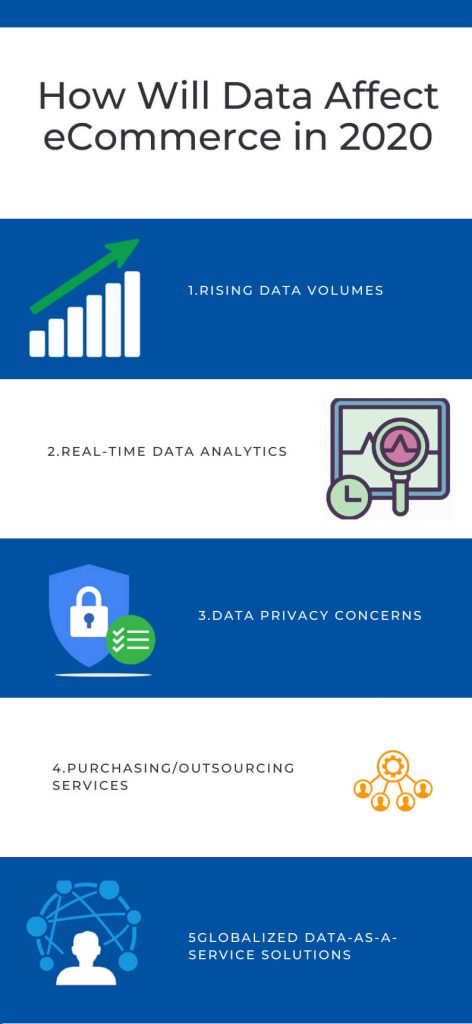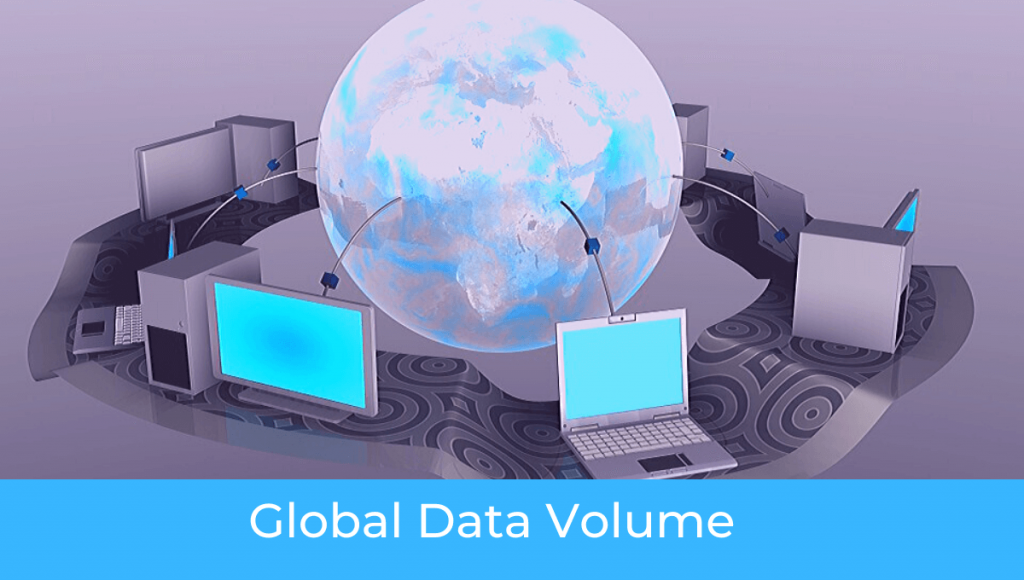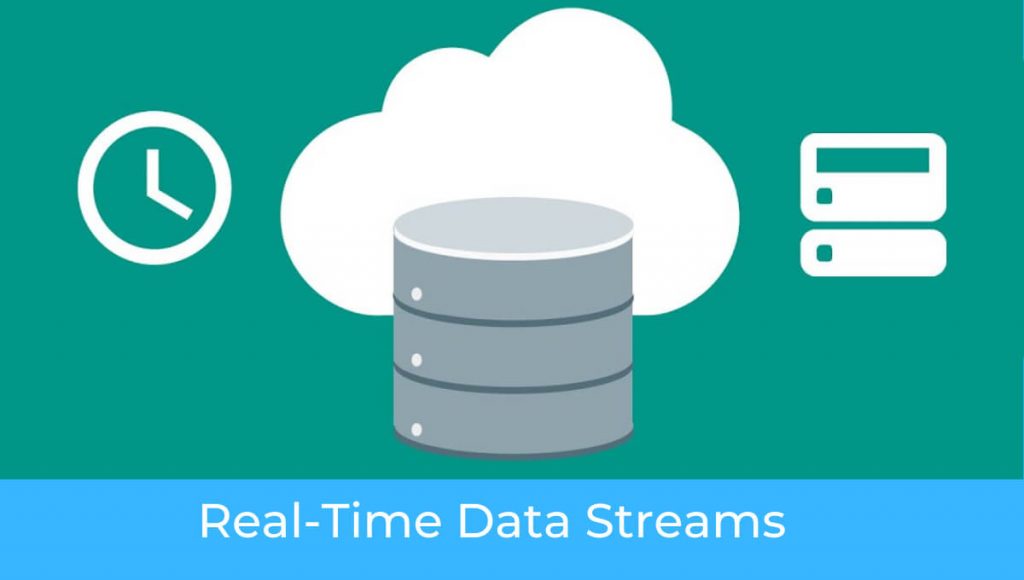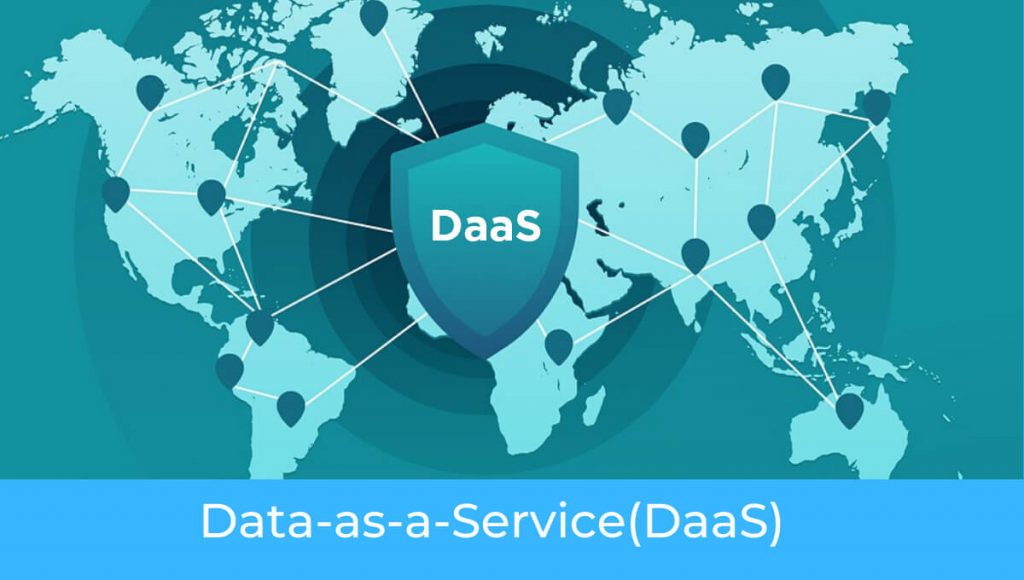
“More Data Is Always Better.”
At the beginning of the last decade, it was a prevalent notion that more data directly translates into extra information & better insights.
Well, not anymore!
Across the global eCommerce landscape, marketers are feeling the impact of changing data standards.
Now, having more data doesn’t matter as much as having the right data does. Adding extra fields to create an extensive data set is no longer a useful strategy. Businesses are actively seeking relevant, authentic, & actionable insights. They want more efficient processes, on-spot strategies, and quicker results.
Needless to say, change is afoot. Let’s take a look at what these new data trends will mean for the eCommerce industry in 2020 and beyond.
Data Will Be at the Heart of Growth & Innovation in 2020

In 2013, an IBM report pointed out that 90% of the world’s data was created in the last two years. As of October 2019, nearly 4.4 billion people were actively using the internet. And, by 2025, our world is expected to create more than 463 billion GB a day.
We can only expect that these numbers would go up, not down.
Right now, every human with a digital footprint is a data factory. Every login, every device, every single interaction with a connected system is leaving incredible amounts of information behind. For businesses, it’s critical to stay informed and prepared with strategies to utilize that data effectively. However, it requires more than a plan to successfully leverage this opportunity.
To create solutions that can leave a positive and lasting impact on your eCommerce business, you must understand what the future looks like.
1. A New Milestone for Global Data Volume

IDC predicts that the digital universe will cross 40 zettabytes by 2020.
That’s 40 trillion GB for the entire Earth. If we calculate a little, every person on our planet will account for 5200 GB of data, roughly.
That’s enormous. And, that’s not surprising, considering the pace at which technology is evolving.
We’re crossing new thresholds of technological integration. 75% of the world’s population is expected to be connected & creating data by 2025. An average person in 2028 might interact with a connected device at least 4800 times a day.
As our vehicles, homes, appliances, workplaces, & other aspects of life become data-enabled, every interaction will turn into a data point. That is an opportunity for businesses, but just as much a risk.
If not managed on time and with finesse, that flood of data can quickly balloon into issues, like-
- Operational inefficiency
- Degraded services
- Poor customer experiences
- Loss of revenue & market repute
As per Gartner, 89% of businesses compete with each other on one metric- customer experience. And, it’s common knowledge that data plays an essential role in defining a pleasant buyer journey. Therefore, the growing volume of real-time data indicates a need to revisit the strategies for assessing it.
2. Limelight on Real-Time Data Streams

We live in a world where data volume is continuously going up. For businesses, that’s the equivalent of getting hit by water from a fire hose. eCommerce enterprises are no longer asking how to manage data. Instead, the focus has shifted to another, more pressing inquiry- how to analyze and utilize data at such high velocities?
Large amounts of data, flowing in at a high rate, creates a critical need to capture and utilize them in real-time. A lot of opportunities are lost when precious data is left to lie dormant.
- The value of data, depending on its nature, can degrade with time
- Managing large heaps of data is delicate, time-taking, and prone to error, especially when done manually
- If data turns obsolete, the cost incurred in extracting, cleaning, and analyzing it goes to waste
Note that data analysis is a time-critical matter, now more than ever. Continuously processing real-time data streams can help maximize the value of information obtained. It can accelerate the process of data-driven decision making and improve response time.
Other industries, like healthcare and telecommunications, have employed this technique and succeeded.
- 95% faster insights about patient’s health through accelerated algorithm execution
- Over 70% improvement in marketing campaign results by using faster analytics for contextual marketing
However, we require a standard system for eCommerce. It should, ideally, find patterns in sizeable real-time data streams, analyze them, and deliver insights concurrently.
2020 will take us closer to innovations centered around real-time data analysis. Businesses will be driven by the need to receive actionable insights in seconds, instead of hours or days. Many eCommerce enterprises are likely to invest in the same in a bid to stay competitive and responsive to the market. Many others will outsource data entry services to third-party providers who can handle real-time data analytics.
Choose your path wisely!
3. A Significant Rise in Data Privacy Concerns

Data security is an urgency that businesses can no longer ignore. Data breaches have become a terrifying trend. On top of that, protecting consumer data is now a top priority for businesses- a result of the evolution of data protection laws.
The largest data breach in the history of the internet is said to be the Yahoo fiasco of 2013-14. The once-prominent internet giant reported nearly 3 billion compromised user accounts.
Since then, there have been similar cases, albeit lower in magnitude. 145 million eBay users were compromised due to data breaches in 2014. Target stores lost 110 million customers in the same year.
Thankfully, 2019 didn’t see a disaster like Yahoo. However, some cases sparked a new kind of worry.
- Thousands of Disney+ user accounts were compromised within a day of its launch
- 162 million unique DubSmash email addresses, usernames, and passwords were sold on the dark web
- Data breaches in 2019 were 54% higher than in 2018, as per 2019 Midyear Quickview Data Breach Report
In other words, eCommerce enterprises will have some significant responsibilities in 2020. They will have to protect consumer data and uphold related regulations. They might even need to discard data that doesn’t comply with the new privacy laws and standards.
Additionally, businesses moving towards real-time data analysis will need to address new concerns.
For instance, if a cybercriminal gets access to your database, they can plant fake data and steal original ones from it. Protecting yourself from data-theft would require a system that can restrict access to your database AND detect false data generation.
However, controlling access in large sets of complex data is easier said than done.
It’s quite a “damned if you do, damned if you don’t” situation. Opening your database to more parties can make it more vulnerable. Limiting access to a few people can lead to a breach going unnoticed.
Simply put, implementing security systems on real-time data analytics is complicated. But, in the coming years, it will be the norm, i.e. the accepted standard. So, be prepared.
- If you outsource data entry services, hire only the reputed service providers
- If you handle data in-house, prepare your team and processes accordingly
- Use best practices while designing architecture for data security
- Focus on accessibility, scalability, and flexibility
- Focus on performance in a hybrid environment.
As the amount of data grows and privacy concerns take center stage, those with a data strategy and roadmap will benefit the most.
4. Purchasing Services Could Become the Norm

In the eCommerce industry, there is a huge fan base of outsourcing services like data entry, product listing, order processing, etc. However, as we step forward, more businesses are increasingly focussing on using external service providers for critical tasks as well. That includes data mining, development, market research, legal support, & many others.
Take a look at where we stand currently in regards to outsourcing.
- The global outsourcing market was worth $85.6 billion in 2018
- Nearly 54% of companies connect with customers through third-party teams
- 24% of all small-scale businesses outsource for better efficiency
- 78% of companies have positive experiences of outsourcing
It’s clear as day that global industries are gravitating towards outsourcing. And, for good reasons too!
Almost every aspect of the eCommerce industry is getting more complicated by the day. Businesses want to dedicate their best resources and time to solve the most problematic scenarios. They want to work towards growing their business, not merely maintaining it. Hence, they prefer to delegate non-core activities.
But, note that in 2020 and beyond, new technologies and better approaches will push the nature of outsourced services into a new arena. In addition to the non-core task, they will be able to manage critical activities as well. Their domain will expand into more specialized service areas. Combined with continually improving efficiency and quality, this development will create new opportunities for businesses as well as outsourcing service providers.
Here’s what eCommerce enterprises can expect from the outsourcing industry in upcoming years
- Specialized skills
- Improved flexibility
- A globally remote workforce
- Gig-based cost-effective pricing
- Complex problem-solving and idea generation
Considering such expected levels of growth, it is possible that businesses will prefer to outsource more activities in the near future.
5. Data-as-a-Service(DaaS) to Get Globalized

Data-as-a-Service is based on a straightforward concept- making data products available to the user on demand.
We’ve established that the global data inflow is headed towards increased volume & velocity. We’ve also discussed the problems that come with managing a database of such parameters. Data-as-a-Service offers a simple solution.
It proposes collecting, cleansing, and enriching data in a centralized place & distributing it to different users on the network as per need. DaaS is beneficial for several reasons-
- Data can be easily moved between different platforms
- Duplicacy and ambiguity are not likely to occur
- Reduced cost of data maintenance & delivery
- Access control measures help preserve the integrity of data
- Global accessibility
- Easy administration and collaboration
To sum it up, DaaS offers a tool-rich, cloud-based analytical platform. It can be configured by the user for their data processing needs. For an eCommerce enterprise, it’s an opportunity to access a pool of unique data that’s otherwise hard-to-find. The DaaS approach offers businesses a smooth flow of structured, organized, and qualified data, sourced from different locations.
However, efforts to implement Data-as-a-Service usually meet particular challenges-
- Cloud-based database manageability
- Data security concerns
- Server concerns
- Real-time system monitoring
- Dependency on service providers
- A requirement of knowledge and expertise of related technology and processes
So, considering these, what does the future of DaaS look like? And how is it going to affect the eCommerce industry?
Well! As per an IDC prediction, 90% of the large enterprises will begin generating revenue from DaaS by 2020. Data-as-a-Service is expected to achieve a CAGR(Compound annual growth rate) of 10% between 2019 and 2024. Couple these facts with other crucial factors, like-
- The desire to gain a competitive edge in the market
- Evolving technology that makes DaaS implementation easier, and
- The growing need to grab valuable information from real-time data analytics
What you get is a combined inclination of the industry towards Data-as-a-Service solutions. Thus, it’s safe to expect DaaS to grow in the coming year.
The eCommerce industry Is up for an Eventful Year Ahead
It isn’t easy to predict how 2020 may turn out. However, these predictions are very likely to surface in one form or another. It’d be better if your eCommerce business is prepared in advance to fight off the oncoming risks.
DataEntryIndia.in has been at the forefront of the outsourcing industry for nearly two decades. When you outsource data entry services to us, you get the advantage of cutting-edge technology, industry expertise, and an unwavering assurance of quality. We keep up with the industry trends while anticipating the changing trends. In addition to outsourcing data entry, we also help you handle other eCommerce data services, like web research, product listings, and data conversion requirements, etc. Just drop a word at info@dataentryindia.in to find out more about our services.